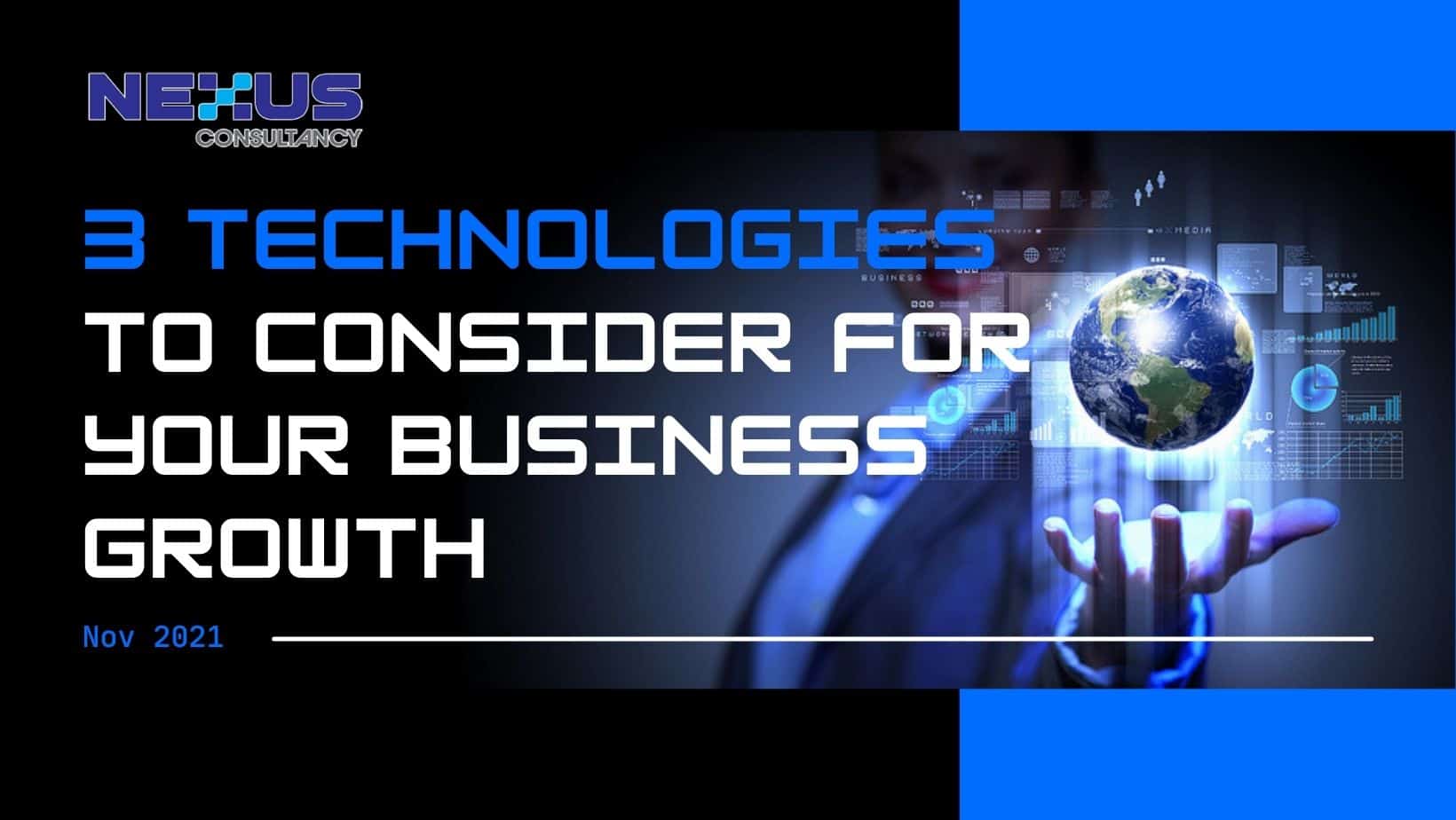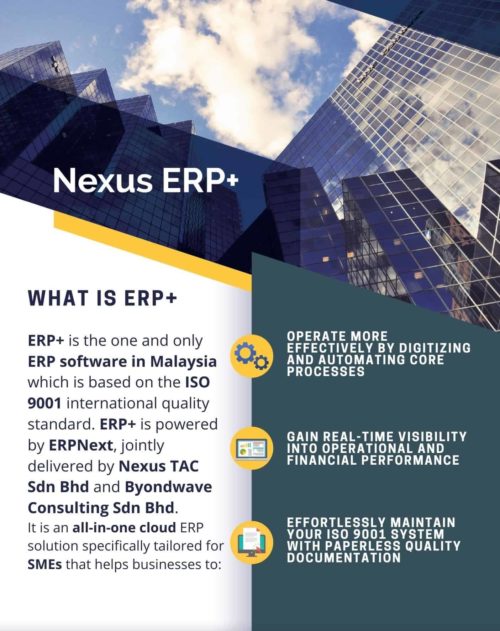
Darren Tang
Director
Today, businesses are using technology to automate, integrate, and re-engineer most operational processes. This has led to improved operational effectiveness and productivity as well as reduced operation costs.
– 3 mins read

Technology has been changing the way we do business, and at an exponential rate compared to 10 years ago, with the Covid-19 pandemic playing a crucial role in leading the change. Whether we are ready or not, technology has become an essential for the day-to-day operation of our business. When technology is utilized effectively, it would help businesses achieve further growth and success.
As businesses recover from the Covid-19 pandemic and grow, technology would be a driving force to help them improve its operational effectiveness and productivity, become more agile, make better decisions with accurate data as well as achieve better remote working efficiency.
What are the 3 technologies which we could consider to help our business grow?

Digital Marketing
We are now in the digital era, where a strong digital presence is not only essential for business survival but also crucial for business growth. 3.77 billion people around the world use the internet and social media and they are doing research and making decisions about purchases. Therefore, businesses would have to consider digital marketing to connect to audiences at the right platform and at the right time.
Businesses should develop a clear digital marketing strategy to reach a maximum impact. Among the strategies that can be considered are good user-friendly website which provides value to the audiences, search engine optimization, social media (example Facebook, LinkedIn), email marketing campaign or pay-per-click advertisements. Execute and measure the digital marketing performance to optimize the resources used.
Digital marketing will accelerate business growth as they allow businesses to reach wide audiences and build lasting relationships with customers.

Cloud Computing
Access to data and information has become very important to businesses, especially as remote working has become the new normal. This is where cloud computing comes in. Cloud computing has been around since the 1990s, but only now businesses are recognizing its long-term benefits which gives users access to storage, files, software and servers through internet-connected devices like computers, smartphones or tablets.
Cloud computing can help businesses avoid upfront costs and the complexity of owning and maintaining their own IT infrastructure, while increase their operational efficiency. Some examples of cloud computing providers are Amazon, Microsoft, Google and IBM. All have different strengths and priorities. When considering a cloud computing provider, among the things to be considered are their services (example Microsoft offers Office 365), ease of migration, cyber security and costs to ensure that the solutions meet your unique needs.
Once the migration to the cloud is complete, you can enjoy the benefits of cloud computing to stay productive which will help your business grows.

Productivity Software
Businesses strive to provide good customer services, improve operational effectiveness and productivity, improve in quality of product/ service, minimize paper works, make better operational decisions and have better remote working efficiency. There are different types of productivity software which can help businesses achieve these objectives.
The most commonly used productivity software includes those for office productivity, accounts and communications. Office suites like Office 365 and Google Workspace are core examples of productivity software that helps increase productivity through documents, presentations, worksheets, databases as well as collaboration tools like emails, calendars, virtual meets. Customer relationship management (CRM) software can help businesses acquire and retain customers by providing high level of customer service.
Enterprise Resource Planning (ERP) system software can help automates business processes, where it will communicate between processes in an organization, example from sales, to purchasing, manufacturing, QC, warehouse and delivery. It helps business control its operation, making it more efficient, more lean, provides real time insights to make better decisions and ultimately lead to time and cost savings. Nexus ERP+, powered by ERPNext, is one such ERP software.
Nexus ERP+ is an all-in-one cloud ERP solution uniquely developed based on ISO 9001 international quality standard. It is specifically tailored to help SMEs to:
- Operate more effectively by digitizing and automating core processes;
- Gain real-time visibility into operational and financial performance;
- Comply to ISO 9001 requirements to deliver consistent quality to customers and effortlessly maintain the system with paperless quality documentation.

Technology is a powerful and essential tool which we cannot ignore for business growth. The process of digitalization may not be simple and will take time. Start by listening to your customers (example how customers make their purchase decisions) and internal team (example what are the current challenges faced by you team). Then you would have a better idea what should be your digitalization strategy. Continue the journey by learning new technology, tools and trends as your business grow.
To learn more how Nexus ERP+ solutions can assist you, feel free to contact us.
More Article
Empowering Employees through ESG: The Role of Training and Awareness
Chief Operating OfficerEmpower your team with ESG training. ISO-aligned, practical, and impactful for SMEs in Malaysia.As businesses around the world embrace Environmental, Social, and Governance (ESG) principles, a common mistake is treating ESG solely as a boardroom...
ESG for SMEs: Simple Steps to Get Started (Even with a Small Team)
Chief Operating OfficerSimple ESG tips for SMEs. Begin your journey with support from trusted ESG consultants in Malaysia.In today’s business environment, Environmental, Social, and Governance (ESG) practices are no longer just for large corporations. Small and...
What Is Food Safety Culture and Why It Matters More Than Ever
Chief Operating OfficerLearn why food safety culture is a must-have for compliance, brand trust, and growth—backed by ISO consultants in Malaysia.In today’s competitive and tightly regulated food manufacturing landscape, compliance alone is no longer enough. To...
Why Proactive OSH Legal Compliance Is Good for Business Reputation
Chief Operating OfficerWorried about Malaysia’s OSH Act penalties or workplace audit readiness? Discover how proactive OSH compliance builds trust, reduces fines, and supports ESG goals.In today’s competitive market, companies are judged not just by their products or...








